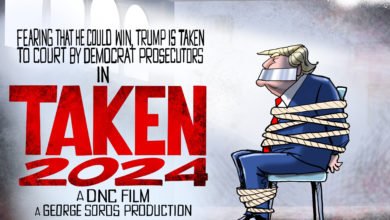Congress’ Perverse Incentive Structure
This week, a small coterie of House Republicans moved, along with all House Democrats, to oust Speaker of the House Kevin McCarthy. Led by Rep. Matt Gaetz, R-Fla., they claimed that McCarthy had to go because of his insufficient zeal in cutting spending, most prominently by failing to advance more individual spending bills.
McCarthy, for his part, had advanced four individual spending bills, which were then rejected by the Senate. In order to avoid a government shutdown, McCarthy attempted to pass a continuing resolution that would have cut discretionary spending by 8% and included border security provisions; Gaetz and his colleagues voted it down. McCarthy then passed, with a majority of Republican support plus some Democratic support, a “clean” continuing resolution to fund the government for 45 days, not including any further funding for Ukraine.
This, for Gaetz, was supposedly the last straw. He took to the floor of the House to accuse not merely McCarthy but the entire Republican caucus of cowardice in confronting President Joe Biden’s spending agenda. “My colleague says we’ve passed the strongest bills in history, well guess what, look at the border right now… I take no lecture on asking patriotic Americans to weigh in and contribute to this fight from those who would grovel and bend knee for the lobbyists and special interests who own our leadership… who have hollowed out this town and have borrowed against the future of our future generations.”
All of this would be more convincing except for two simple facts: First, Democrats control the Senate and presidency, making it impossible for Republicans to pass bills closing the border and radically cutting spending; and second, Gaetz is perhaps Congress’ most ardent supporter of former President Donald Trump, who added some $7 trillion to the national debt and pledges never to touch the greatest drivers of America’s debt: Medicare, Medicaid and Social Security.
So, what was this truly all about? Radically misaligned interests. The Republican Party has zero actual institutional power at this point. It can be captured from the outside with ease; it can be twisted by a few rogue actors who seek attention rather than policymaking power. McCarthy signed his own political death warrant the day he acquiesced to insurgent Republicans’ demand that they be able to challenge his speakership with a single vote. Once, congressional Republicans ensured solidarity through the power of the speakership; now the speaker worries about avoiding his own demise at the hands of fractious politicians seeking TV spots on CNN and MSNBC.
This won’t change with McCarthy’s ouster. Should Rep. Steve Scalise or Rep. Jim Jordan take over, they will presumably still serve at the behest of a few free radicals who can ensure chaos at the drop of a hat. The only way to restore any semblance of order to the House would be to restore consequences for violating party solidarity. And that won’t happen so long as conservative media declare anyone a hero who declares himself a lone man standing against the “powers that be” — and so long as both politicians and conservative media parrot the lie that if only Republicans were simply more determined, conservative policy priorities would magically become law over the objections of a Democratic Senate and Democratic White House.
Agree/Disagree with the author(s)? Let them know in the comments below and be heard by 10’s of thousands of CDN readers each day!





Very little of this article smells like Ben. Republians can do quite a bit of harm to JB by not proposing any bills that contain funding. They hold the power of the purse. Have you no clue why “Follow the money” has power?